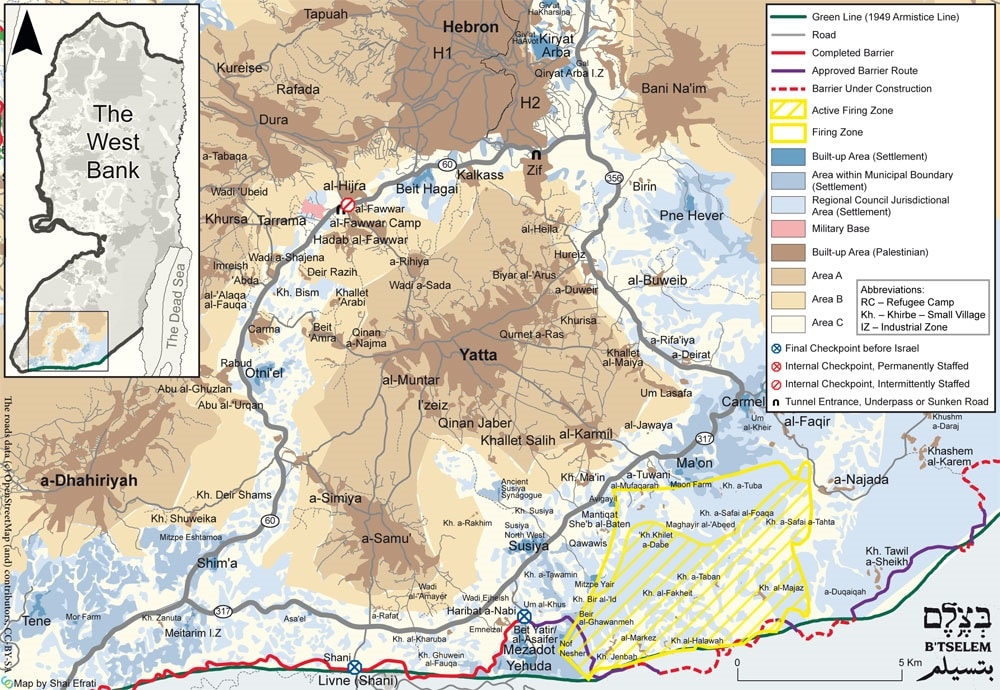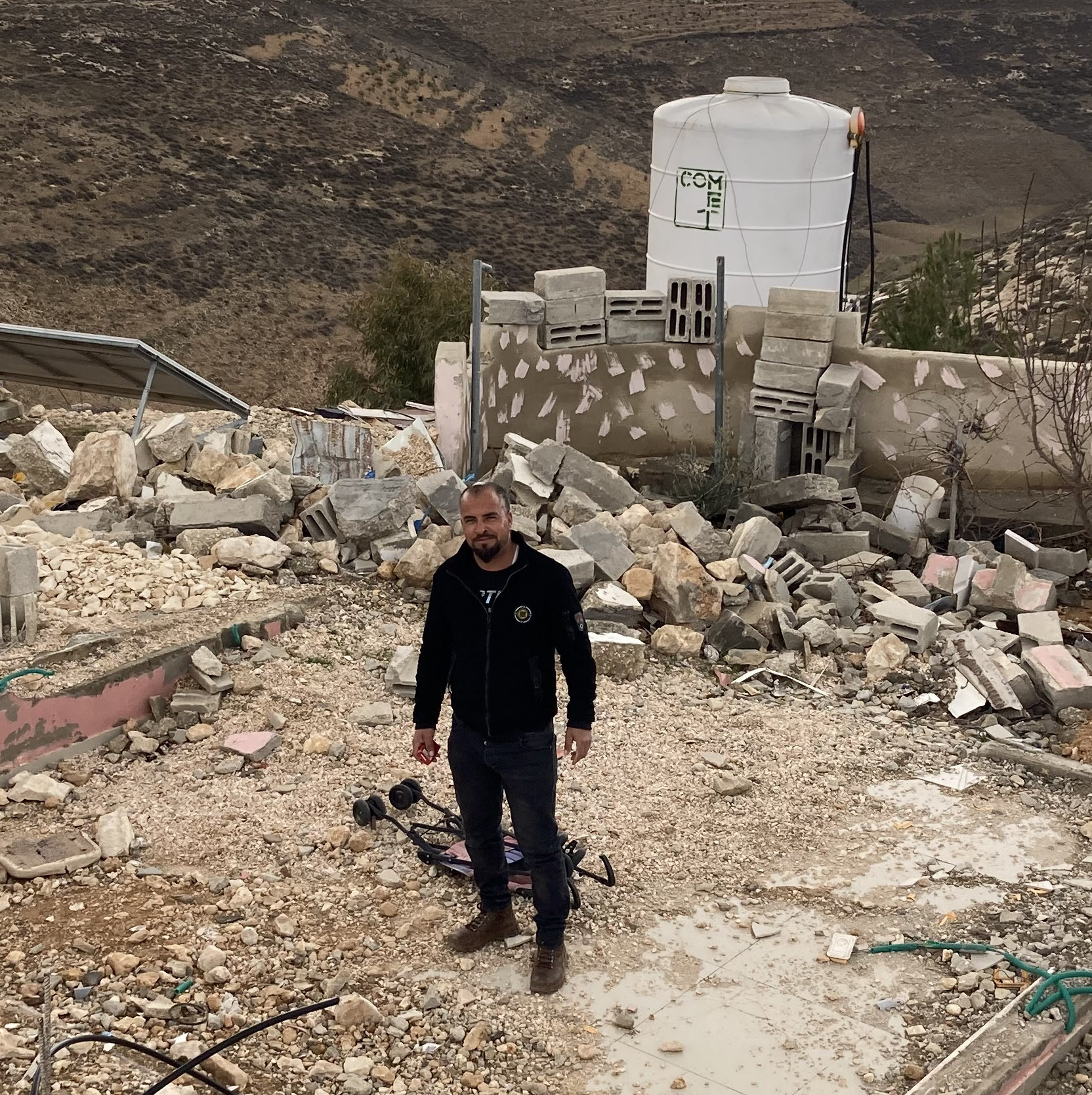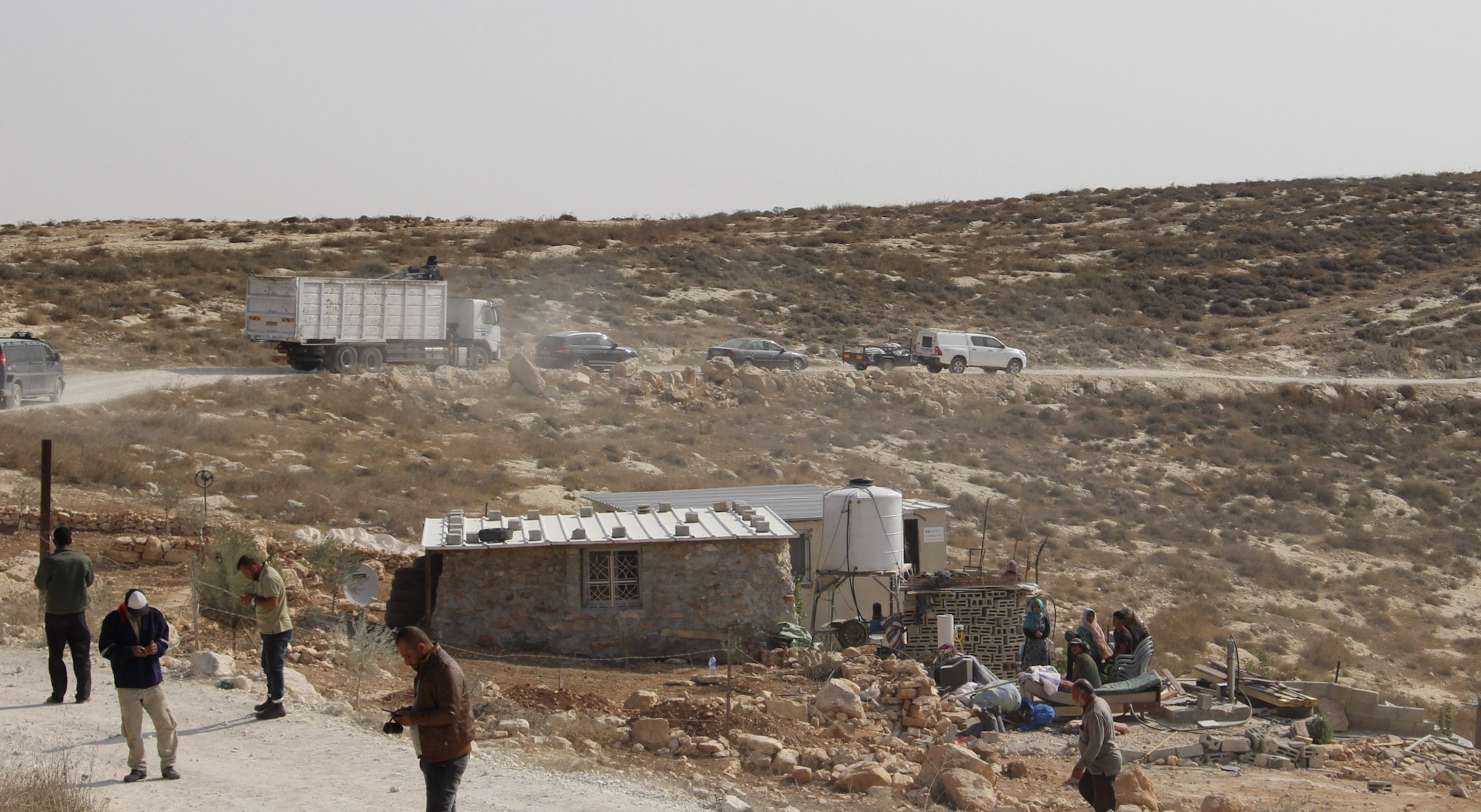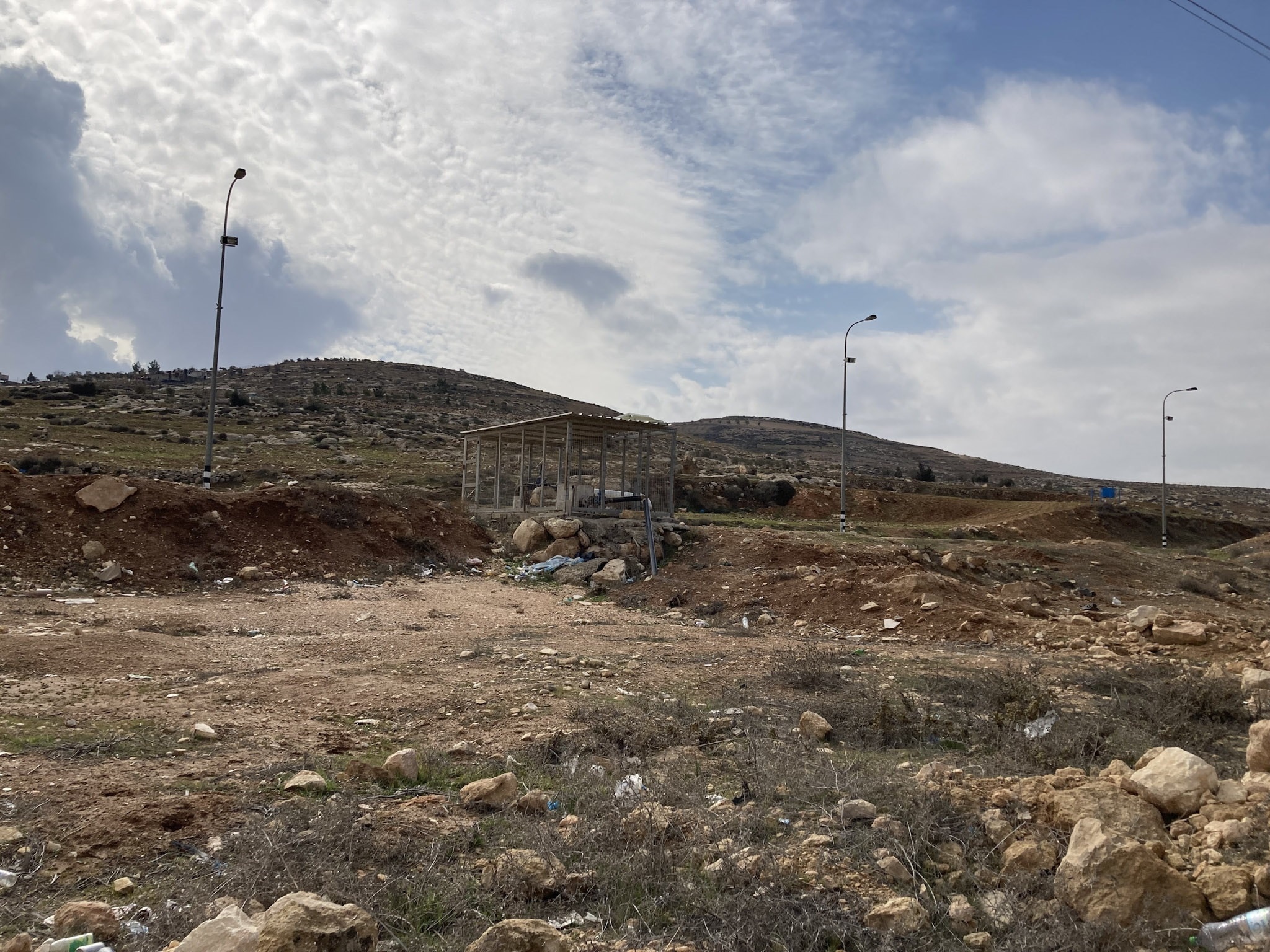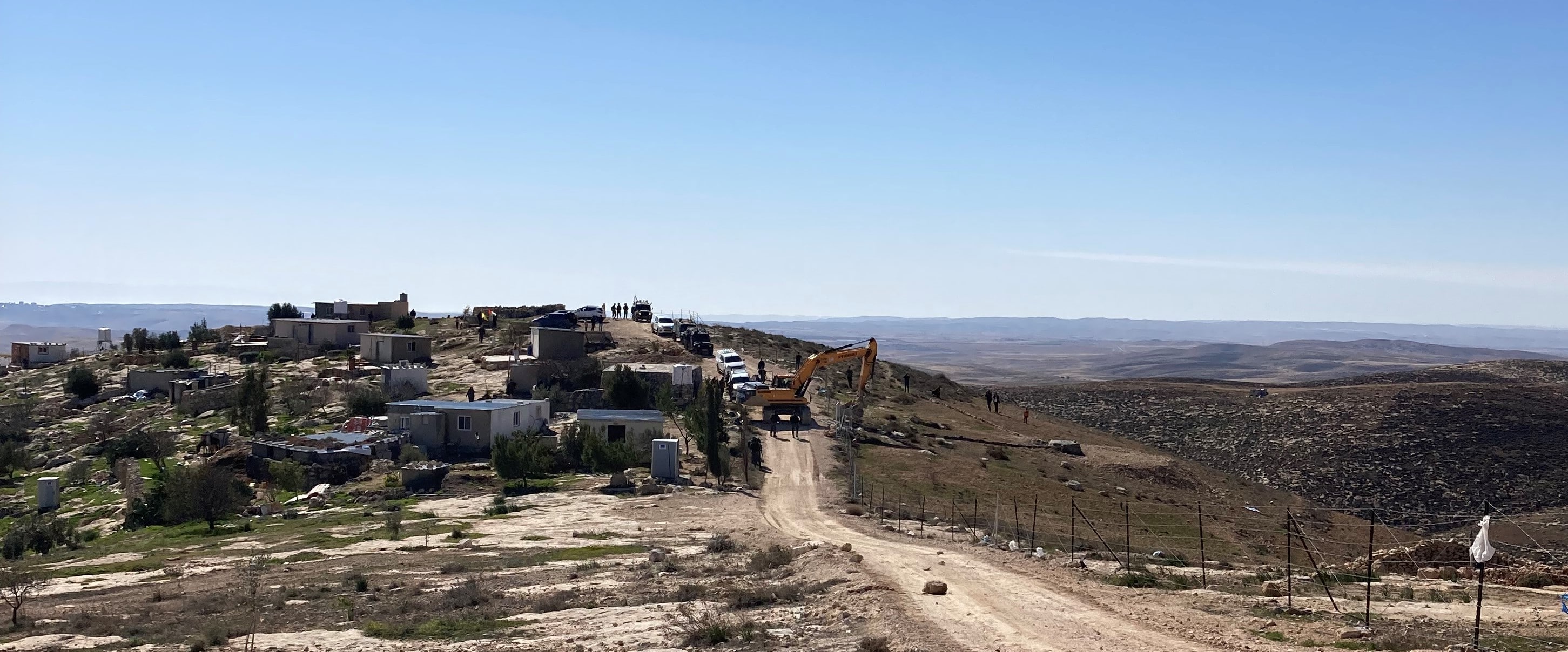Nidal Abu Younes, Jinba, Masafer Yatta
These are the words of local resident, Nidal, in the wake of the recent decision by the Israeli Supreme Court to suspend a final verdict on the future of Masafer Yatta. After a 20-year legal battle, the court decided on 15 March to once again delay a verdict on whether to forcibly evict around 1,300 Palestinians living in eight communities in the area. The land has been in their families for generations but life here has been precarious since Israel declared around 7,500 acres of Masafer Yatta a military training ground, ‘Firing Zone 918’.
Despite the Firing Zone only being designated in 1980, families that have lived and worked the land there since before the creation of the State of Israel have already been forced out of their homes once. The previous forcible displacement was carried out in 1999, when the Israeli military evicted the residents from their homes and into trucks with only what they could carry and no place to go.
With legal assistance, residents petitioned the Israeli High Court of Justice and managed to return to their homes in 2000. As no legal ruling has been made to date, the case has remained pending. The communities have been given interim injunctions to remain in their homes, however it is an extremely precarious existence.
Click for detail. Map showing Firing Zone 918 in yellow. Source: B’Tselem
Building permits are not granted in military Firing Zones, so any construction or development in these eight Palestinian communities is considered illegal under Israeli military law, which governs the area. To meet the needs of a growing population, many families build homes and infrastructure anyway and live with the risk that they will be demolished.
We recently met local resident Jabir in the ruins of his house in the village of Khallet Athaba, which has been demolished, not for the first time. We took in the sad views of other demolished homes, but also the beautiful views of the landscape of Masafer Yatta. He welcomed us with copious cups of ‘shay marameya’ (sage tea), laughter and stories. His family has owned land in the area for more than one hundred years.
The cosy houses here are perched on the mountainside and most have been demolished more than once. After each demolition, Jabir and his community members rebuild, reusing as much as they can from the rubble.
Jabir, Khallet Athaba, Masafer Yatta
Jabir standing in the ruins of his demolished home in 2022
Members of Jabir’s family sitting on salvaged furniture after their living tent was confiscated in 2019
As we sat with him, drinking ‘shay’, Jabir also shared that there had been a recent settler attack. The Israeli soldiers present did nothing to prevent the violence and were heard saying ‘fight as you like…’. He also recounted another incident where two Palestinian farmers were shot in the arm and another in the leg by Israeli settlers. I wrote in an earlier eyewitness story that Palestinians seldom see justice for settler violence.
Palestinian human rights organisation, Al Haq
The day after we visited Jabir, we received a call about another demolition in Khallet Athaba, this time of four rainwater collection cisterns. These cisterns are created using natural caves in rock and topping them with cement to direct the water to the cave and to cover the top. Many communities rely on these cisterns to provide water for both the people living in the community and their animals.
Neighbouring Israeli settlements and settler outposts benefit from water provided at a discounted rate from Israeli company, Mekorot, via piped infrastructure. The Israeli military who have full control over this area refuse to allow most Palestinian communities to connect to mains water. When their cisterns run dry, they are forced to import their water from Mekorot by truck with high transportation costs. All the trucks are reliant on a single local filling station.
In a recent article for +972 magazine about the latest court hearing, Basil Al Adraa of At-Tuwani, Masafer Yatta writes;
The single water filling station for the area of Masafer Yatta
Demolition convoy destroying water cisterns at Khallet Athaba
Israeli human rights organisation, B’Tselem
Numerous villagers from the eight communities petitioning against the Israeli military’s attempt to forcibly displace them attended the High Court of Justice for the latest hearing. The judge was reminded of a transcript document from a government meeting in 1981, presented at an earlier hearing. It showed then agriculture minister, Ariel Sharon suggesting they establish the military training zone in Masafer Yatta, in order to prevent the ‘expansion of the Arab villagers from the hills towards the desert’.
According to Israeli human rights organisation B’Tselem, ‘over the years, the Supreme Court has permitted nearly every kind of human rights violation that Israel has committed in the Occupied Territories.’ As the eight communities of Masafer Yatta face another court postponement and more uncertainty, they continue to rebuild from the rubble against all odds. As our chat comes to a close, Nidal calls for your solidarity and action:
Nidal Abu Younes, Jinba, Masafer Yatta
Take action!
-
Use our email template for UK or Ireland to contact your elected representatives and call for immediate justice for the residents of Masafer Yatta.
-
Watch this 3-minute video by Palestinian human rights organisation, Al Haq to learn more about the situation in Firing Zone 918.
-
Learn more about demolitions and settlements in Palestine by reading our housing page.
What does international law say?
by EA Jessica – March 18, 2022
Share now


